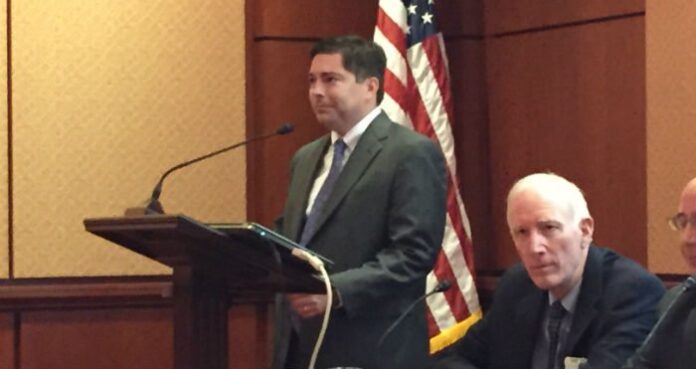WASHINGTON – “The Internet is not a human right,” said Michael O’Rielly, Federal Communications Commission commissioner, in an address to the Internet Innovation Alliance panel.
O’Rielly made the remark as part of a presentation titled “The Role for Regulators in an Expanding Broadband Economy.” His comment seemed to be aimed at those who have frequently raised the Internet to the same level of necessity as that of shelter or food in the list of things that are necessary for humans to not just survive but thrive.
O’Rielly’s admonishment is in contrast to a recent trend in public policy of the Internet being viewed more and more as a basic necessity of modern life.
The United Nations is one of the organizations that holds this view evidenced by a 2011 special report that reads, in part: “The recent wave of demonstrations in countries across the Middle East and North African region has shown the key role that the Internet can play in mobilizing the population to call for justice, equality, accountability and better respect for human rights. As such, facilitating access to the Internet for all individuals, with as little restriction to online content as possible, should be a priority for all states.”
Despite his contra position, O’Rielly didn’t deny the importance of the Internet in daily life.
“We can all agree that we live in a technology-centric society; from our work experiences, to the cars we drive, to the free time activities, the Internet and broadband are ever present,” O’Rielly said.
Despite this admission, O’Rielly vehemently maintained that the Internet should not be raised to the same level of life, liberty and the pursuit of happiness.
“Internet access is not a necessity or a human right, it is important to note that Internet access is not a necessity in the day-to-day lives of Americans and it doesn’t even come close to the threshold to be considered a basic human right.” O’Rielly said in his remarks.
There are certainly people who support O’Rielly’s stance, but popular opinion may be against him. In 2010 a BBC survey of 26 nations found that 76% of those polled said the Internet was a fundamental right.
The U.S. Department of Commerce meanwhile estimates that 96% of working Americans use mobile devices or the Internet as part of their daily lives while 62% reported the Internet as being an integral part of their job.

